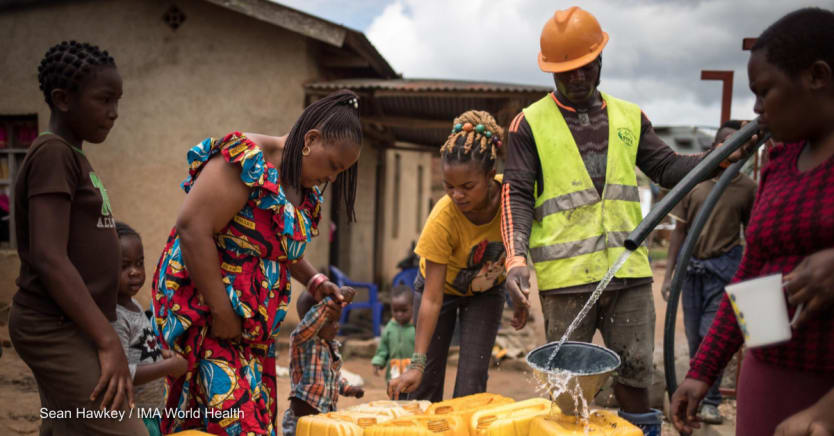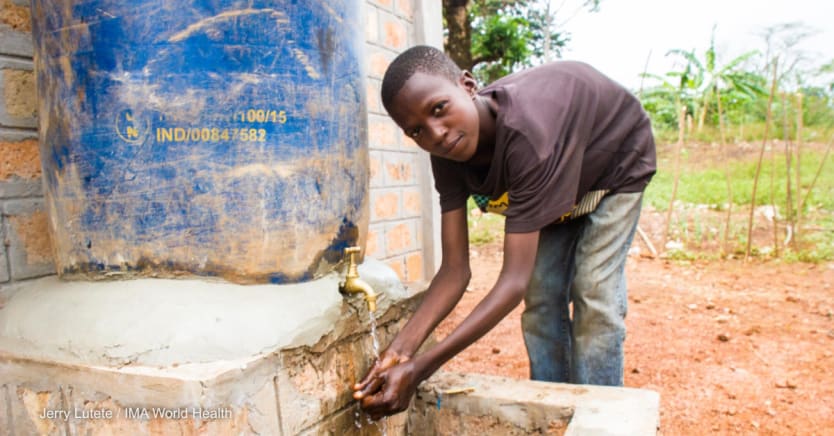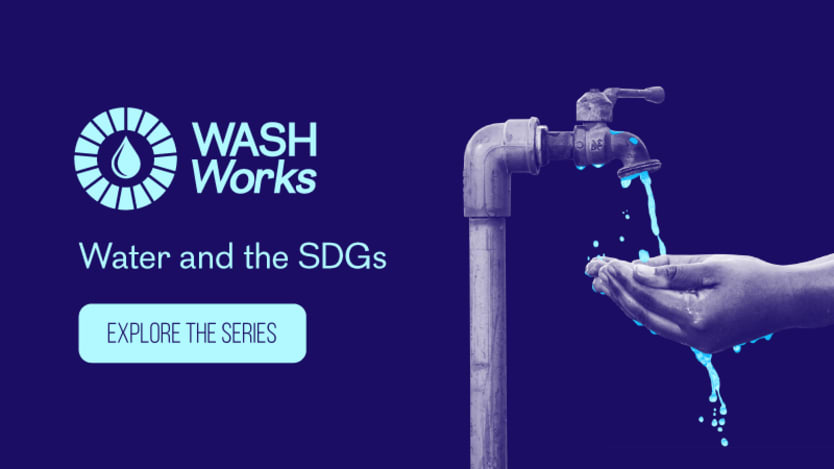Opinion: Making market systems work for WASH

With 2.5 billion children under 5 debilitated each year by preventable intestinal disease, it is clear that reliable, affordable, and safe WASH products and services are essential components of any public health strategy. And yet designing and building self-sustaining WASH systems that deliver them has been frustratingly difficult.
Finding the connections between delivering WASH and public health services across government, the private sector, and local managers can provide a lasting solution to this nagging problem.
The problem begins when WASH is too often viewed as a separate discipline, without adequate consideration given to how the systems of service delivery — governmental and community — will continue to function once a project ends.
Global trends are moving away from this narrow focus to emphasize a service delivery approach that recognizes the importance of wider systems of governance.
For example, in Kenya and the Democratic Republic of Congo, IMA World Health has developed a multi-sectoral system strengthening approach that combines the resources and capacities of WASH and health sector authorities with both the small and multinational private sectors to plan, finance, and deliver integrated area-wide outcomes.
In DRC, the need for WASH is staggering. Studies indicate that less than a third of the population in the country’s rural areas has access to adequate sanitation. The main issue is not access to sanitation: in the rural areas, the rate of open defecation is relatively low at less than 20% when compared regionally. The problem is that the sanitation facilities that do exist are inadequate, often utilizing surfaces that are difficult to wash and therefore become vectors for spreading disease.
The market is not providing quality products, and the government is not providing leadership that opens the market and establishes standards and norms.
A preventable public health burden
Access to clean water is a similar struggle. Just over 30% of those living in rural areas have safe water to drink. The conundrum is that water is plentiful in DRC’s countryside, as streams abound.
But the water is contaminated or stagnant, rendering it unsafe for consumption. Together these generate a preventable public health nuisance that unnecessarily burdens health services across the country.

In Kenya, Dr. Dan Wendo and his IMA team worked with the government of Nairobi City County and its County Health Management Teams to position them to fully support and fund IMA’s multi-sectoral system strengthening methodology, developed alongside the NCC.
The work established collaborative mechanisms for the Departments of Water and Health to work closely under devolved governance. NCC identified qualified public health officers to serve as full-time WASH Focal Points at the sub-county level. They are well placed to elevate WASH solutions and ensure their inclusion in overall health system improvements.
Having an integrated health system strengthening approach, as opposed to implementing individual one-off WASH projects, is a much more cost-effective and sustainable way of dealing with the issue.
—Like many international NGOs, IMA has been working for decades to address the need for adequate WASH in the communities we serve. We have installed thousands of water points, facilitated construction of tens of thousands of latrines and handwashing stations, and changed the hygiene behaviors of hundreds of thousands.
But this is a drop in the bucket in a country, such as DRC, of 80 million people. Given the immense challenge, what is the best way forward?: Markets and the systems that govern them.
A ‘promising approach’
IMA has found that engaging local market forces to create solutions is a very promising approach. We are working in DRC to identify local organizations willing to provide WASH services and products to the community with improved quality at an affordable price. Families who can’t afford these services would receive a smart subsidy compatible with market operations.
The aim is to achieve a critical mass of people adopting improved sanitation. As this becomes the norm, it will become what people expect in the community, and it will grow on its own. After the project is finished, with the right rules, financing, and incentives in place, these WASH facilities will continue to function.
For example, by using the receipts from the sale of water to subsidize sanitation facilities, as we plan via our network of health care facilities, we think the market can greatly expand sanitation and equity without being dependent on project after project for financing.
Integrating WASH as part of our health system strengthening has also paid dividends. Health system strengthening has long been at the core of IMA’s approach. This involves working directly with national and local government entities and other key players to provide technical assistance and capacity-building support to strengthen engagement, capacity, and investment at all levels of the health system.
As we have found in both Kenya and DRC, the advantage of working within a government’s health system is that it is closely linked with the local community. There is a management committee in every local health facility that takes the lead in improving sanitation practices.
Health workers and their community counterparts are able to contact every household in a village to help communicate both WASH and health messages to secure investment in improving sanitation facilities.
Having an integrated health system strengthening approach, as opposed to implementing individual one-off WASH projects, is a much more cost-effective and sustainable way of dealing with the issue.
Where there is a market, there is a system that organizes it — locally governed and driven. Understanding and supporting that system is increasingly seen as the pathway to sustainable services at scale. The health sector has learned this; the WASH sector should link and learn. The U.S. all-of-government Global WASH Strategy is positioned to demand nothing less.
Visit the WASH Works series for more coverage on water, sanitation, and hygiene — and importantly, how WASH efforts intersect with other development challenges. You can join the conversation using the hashtag #WASHWorks.

Search for articles
Most Read
- 1
- 2
- 3
- 4
- 5









